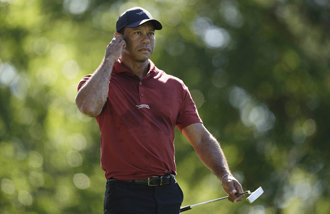'I live with my animal companion'
'I live with my animal companion'
Posted February. 04, 2017 07:10,
Updated February. 04, 2017 07:24

That bittersweet advice was in fact what I had to thank for years later on. As a matter of fact, I have no right to force my solitude to a different species under the guise of symbiotic relationship. After all, it took me nine years to repot my rubber tree, which kept by my side the whole time.
The author in real life became a veterinarian after studying philosophy at college and shared a 13-year relationship with a dog named Bokdol from the very first years to the last days when Bokdol died of sickness. In the preface, the author explained that this book was intended to open a discussion on how people treat animal companions, not to provide information.
“Animal companions touch the hearts of people, and make them stave off from ignoring their responsibilities," the author said. "If we live a ‘philosophical’ life where we seek change headed to the right direction by considering fundamental factors while keeping in touch with reality, a life shared with a companion animal would be the best environment for philosophical thinking.”
The consistent message read between the lines advises readers to be more considerate to others. The book suggests that readers look deeper into the souls of their animal companions as true life partners, not as another accessory to boast on their Instagram pages. Episodes on veterinary also remain unbiased and never rely on happy or sad endings.
“You should not abuse or neglect your animal companion, but at the same time try not to be hasty and be too nice to them, because it will inevitably lead to consequences," the author said. "For newly adopted furry companions, their worst enemies are children who toy around animals and grownups making all the fuss and provoking their kids. These are the exact behaviors that give even more stress to animals whose plates are already full adapting to the new environment.
According to a 2016 survey conducted by Statistics Korea, there are approximately 10 million Koreans raising animal companions. However, the society is still immature when it comes to treating other species. Only the “market” has increased. I am utterly ashamed and reminded of this situation whenever I share eye contacts with puppies crouching inside the cage of a pet shop in front of my house. The author growled when a crippling two-month street cat was rescued after being attacked by neighbor rascals, saying that “men are vulgar creatures who bow before the strong but show cruelty to the weak.”
“Are we using animal companions, or are we trying to coexist with them? Can we justify our behavior just because we are strong enough to take advantage from them? Wouldn’t that be violence? The same goes for obsession on forcing animal companions to fill in our empty hearts and souls,” the author said.
The later part of the book discusses how to react to the death of animal companions and what to think about the give-and-take trust and love relationship, which goes beyond benefits and effect. While the author commented that “no matter how many times I repeat the gravity of the situation, the situation itself won’t get any serious,” the book still is a valuable mirror to reflect on for at least a brief time to those who made easy decisions to raise furry companions or those who already are raising them.
As the author already predicted in the book, skeptics are bound to sneer and say “what’s all this fuss about animals when we humans are hard to get by?” Still, Gandhi (1869-1948) once said that “the greatness of a nation can be judged by the way its animals are treated.” Wouldn’t this apply to interpersonal relationships as well? Surely, the words “nation” and “animals” can be replaced with “man” and “peers.”
Taek Kyoon Sohn sohn@donga.com







